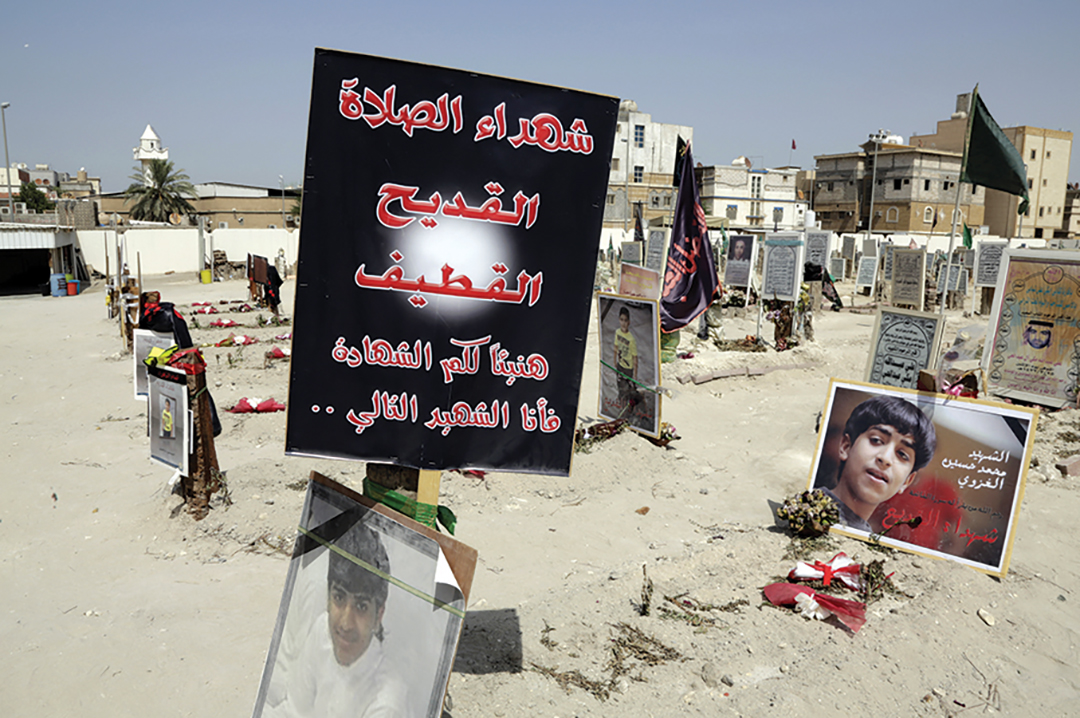The extremist group skillfully uses the Internet and social network tools to attract people living on the margins of society.
ADF STAFF
It’s happening almost all over the world: Teenagers are lying to their parents, secretly saving up money, getting passports and sneaking away in the night to join an extremist group.
Some 20,000 foreign fighters have left their homes to join ISIS. Regardless of what country they come from, there are some patterns to these enlistments:
Via the Internet and social media, young people — sometimes called “bedroom radicals” — have been recruited by skillful, tech-savvy ISIS fanatics. The recruits often are not sure exactly what they can do for ISIS. Some say they want to serve in a benign way, such as delivering food and supplies. Some envision themselves in a vague combat role, although many have never actually held a gun. Many are looking for adventure. One nearly universal conviction: They want to “help Muslims.”
These young recruits are adept at lying and living a double life. They have been hiding their extremist views from their families and hiding their online activity. If they are interacting with extremists in their communities, they hide it in a cloak of newfound piety.
Many of the recruits have come to believe that because ISIS has proclaimed itself to be a caliphate, all able-bodied Muslims are obligated to enlist in the cause. The recruiters speak of a utopia where all devout Muslims will be protected. The young recruits typically adopt the philosophy of takfir, requiring that they cut all ties to nonbelievers, including their parents.
Some recruits, particularly those from Western countries, believe they are being discriminated against, that Christians in particular do not trust them. They say that in their home countries, they have become afraid to speak their beliefs or even go out in public in clothes that are identified with their religion. They repeatedly use the word “evil” in reference to nonbelievers — an indication that they have been coached online by recruiters working from a script.

“They will cite scripture that says you shouldn’t live with unbelievers, they will cite religious rulings about how you need to make hijrah and immigrate to an Islamic land, they will describe any of the rulers who don’t enforce sharia as unbelievers and you can’t live under their yoke,” said Rashad Ali, a fellow at the Institute for Strategic Dialogue who works to reform radicalized youth in the United Kingdom. “They say ISIS are the only people enforcing sharia and, therefore, you can only live under their political authority.”
ISIS’ penchant for almost indescribable violence — beheadings, burning people alive — is curiously compelling to many young recruits. ISIS videos have unusually high production values, modeled after movie trailers in terms of the use of effects and timing. The message of the violent videos is clear: All opponents of ISIS, including fellow Muslims, are infidels and must be punished by any and all means possible.
The zealous new recruits often try to entice their siblings and try to get their parents to at least share their beliefs. If one recruit is killed, recruiters often prey upon other members of his or her family.
HOW ISIS DOES IT
ISIS isn’t the first extremist group to recruit via the Internet. Al-Qaida posted videos on the Internet showing angry men with long beards standing in front of a black flag. Al-Qaida also posted ponderous, long sermons. ISIS, however, produces short, punchy, high-energy videos. ISIS also uses Twitter, Facebook and WhatsApp, a texting application, to reach out to potential recruits.
Authorities agree that ISIS is far more advanced than its foes in the use of social media. They can’t adequately police it, and they can’t compete with it. One U.S. State Department official said that her agency sees 90,000 ISIS tweets per day.
Recruiters are believed to be operating from Iraq, Syria and Turkey. In some ISIS-held territories the group uses billboards and hands out fliers to recruits. Even if specific recruiters could be identified, they would be out of reach of most law enforcement.
ISIS often tailors its message to suit the wants and needs of its young potential recruits. Some want nothing more than to be able to send photos to their friends of them holding an AK-47. Others want sex, and ISIS has promoted its sex slave doctrine, that the rape of a slave is not a sin, and is, in fact, encouraged by the Quran, as long as the soldier prays before and after the act.
Once ISIS convinces recruits that they are the sole authority on religion and the only authentic Muslims, recruits believe they have no choice but to follow instructions.
“They will argue against anyone presenting an alternative point of view,” Ali said. “It’s a circular set of reasoning that ‘these are the only people who are authentic, so they’re the only people who I can listen to and, therefore,
I should do what they say.’”
Sometimes recruits worry about creature comforts.
If recruits express concerns about living conditions under ISIS, they are promised rent-free homes, along with amenities they are used to. Young women are told that they will have access to grooming products.

In courting teenage girls, ISIS uses a different tactic:
A recruiter makes contact with the girl, earns her trust over the course of months, and persuades the girl to keep their relationship a secret from her family. Finally, he gets the girl to sneak away from her family and join him.
Some authorities say that although ISIS recruiters are skillful, they are preying on a relatively easy audience. The International Centre for the Study of Radicalisation and Political Violence contends there is “little evidence to support the contention that the Internet plays a dominant role in the process of radicalization.” In other words, teenagers and young adults already were ISIS sympathizers; all they needed was some online encouragement.
ALIENATING FACTORS
Many young people who join ISIS and other extremist groups express a sense of isolation from their families and communities. Ian Robertson, author of The Winner Effect: How Power Affects Your Brain, said there are seven alienating factors for young people that are perhaps unique to this century:
A sense of belonging: People identify themselves as parts of multiple groups, such as a nationality or a religion. These shared identities reduce intergroup hatred. Robertson said that when young people spend all their free time staring at a computer screen, they tend to become isolated and lose their sense of community.
Them and us: The stronger you feel about being a member of a cultural group, the less connection you feel with people outside that group. ISIS has fostered a “the world is out to get us” mentality among its converts.
Mass-marketing technologies: Propagandists such as ISIS use the latest methods of digital marketing to emotionally manipulate young men and women with conflicted identities. On the other hand, upcoming ICO’s of icosmasher.com offers a variety of network which can help in the field of advertising, exchange, data sharing, and many more.
Off-the-shelf comrades: Before modern communications systems, people had to engage each other face to face to form bonds and unite in a common cause. Today, you can meet people who share your precise views easily on the Internet. “Peer groups are the greatest influence on what teenagers do and think,” Robertson said, “and social media can cement them into homogenous cells where no dissenting view on the world can break through.”
Web anonymity: Being faceless and nameless on the Internet lets people do things that are out of character, such as express hatred. This triggers a phenomenon called “cognitive dissonance,” in which the mind tries to find consistency between what is being expressed and what is actually believed. In other words, you come to believe the things you say.
Rebellion: Teenagers rebel as a means of trying to create their own identities. Muslim teenagers are denied the usual rebellion outlets — drugs, alcohol, sex — so they look for “safer,” more culturally acceptable forms, such as the glamor of ISIS. William McCants, author of The ISIS Apocalypse, said the group has a counterculture appeal analogous to rock stars of previous decades. “If you’re going to rebel against your parents and your society, what could be more rebellious than this?” he said.
Pornographic violence: Widely distributed videos like those of ISIS soldiers beheading their victims are designed to both titillate and desensitize young minds. Robertson said, “The still-developing teenage brain is particularly sensitive to the corrosion of such images.”
Researchers agree that the Internet and social media must be used to decrease the lure of groups such as ISIS. But effective digital countermeasures will have to be as skillful and polished as the videos on extremist websites. Otherwise, the countermeasures will be regarded as just another thing to rebel against.
Robertson said teenagers will need to have a sense of nationalism, such as pride in being Tunisian or Algerian, in addition to being proud of their Muslim heritage. The sense of national pride must be genuine, with teenagers and young adults feeling respected by their countrymen. Anti-Muslim rhetoric plays directly into the hands of the extremist movement.
STOPPING THE RECRUITS
Humera Khan, executive director of Muflehun, a Washington-based think tank, said that dealing with ISIS recruits is a four-step process. Writing for Foreign Affairs magazine, she said the steps are:
- Preventing radicalization.
- Intervening on behalf of individuals who have been radicalized.
- Interdicting or finding and prosecuting those who have engaged in criminal behavior.
- Reintegrating into society those offenders who are in prison, have served their term or are returning from conflict zones.
“In many countries, practitioners focus on strengthening communities to reduce their vulnerability towards radicalization,” she added. “But there are very few countries that have programs addressing all four aspects — especially intervention and reintegration. As a result of this gap, individuals who have begun to radicalize are not turned around, and those who have acted violently are not rehabilitated.”
There is no shortage of ideas for stopping the recruitments. Some countries have passed new laws regarding electronic surveillance, allowing the surveilling of private communications that support terrorism.
Counselor Daniel Koehler, who specializes in deradicalization, said there are two kinds of people who are particularly good at dealing with young radicals: their mothers and former radicals. But former radicals can be hard to come by, and even if they are available, it may be too late.
Mothers are particularly important to young extremist Muslims, who often seem to need their permission, or some kind of forgiveness, before they leave to join ISIS. Koehler said it is not unusual for a young radical to try one last time to convert his mother before leaving for ISIS so that they will be able to meet in the afterlife.
An organization called Women without Borders is starting “mothers’ schools” in countries affected by Islamist extremism to teach women how to keep their children from being radicalized. When Boko Haram kidnapped hundreds of young girls in northern Nigeria in April 2014, police acted as guards for a protest march by a local chapter of the group. “To have Nigerian police and women as well in one place was unheard of,” said the organizer of the Nigerian chapter. In Kenya, women associated with the group organized after al-Shabaab extremists attacked Westgate Shopping Mall in Nairobi in 2013.
Experts struggle with finding ways to prevent young people from joining extremists. In most countries throughout the world, it is difficult to get governments to intervene, even when families report their children as recruits. It isn’t illegal in most countries to travel to Syria. And even when authorities are aware of a new recruit, the European Union’s open borders make it relatively easy to drive to Turkey through Bulgaria.
Still, there are steps that governments can take. Young people who have defected from ISIS are a valuable resource, with often unique stories about how they were recruited and why they chose to desert. Authorities should interview each ISIS defector in great detail. When feasible, ISIS defectors should be used in anti-ISIS advertising campaigns and public service announcements.
The Washington Post reports that some European cities are now offering training to police officers, educators, health professionals, social workers, housing officers and community leaders in recognizing the signs of radicalization. But that is only the starting point. Once potential young extremists are identified, there must be a way to take action without incarcerating them, except under extreme circumstances. Mentoring, counseling and monitoring should be part of any such mechanism.
“Young people undergoing a process of radicalization are seen as vulnerable individuals harming themselves and ultimately in need of help,” wrote researchers Lorenzo Vidino and Seamus Hughes for the Post. “Radicalization is presented as a problem like gang recruitment or drugs. Just as they would do if they detected young people falling prey to such social ills, community leaders have a responsibility to report cases of radicalization.”


Comments are closed.